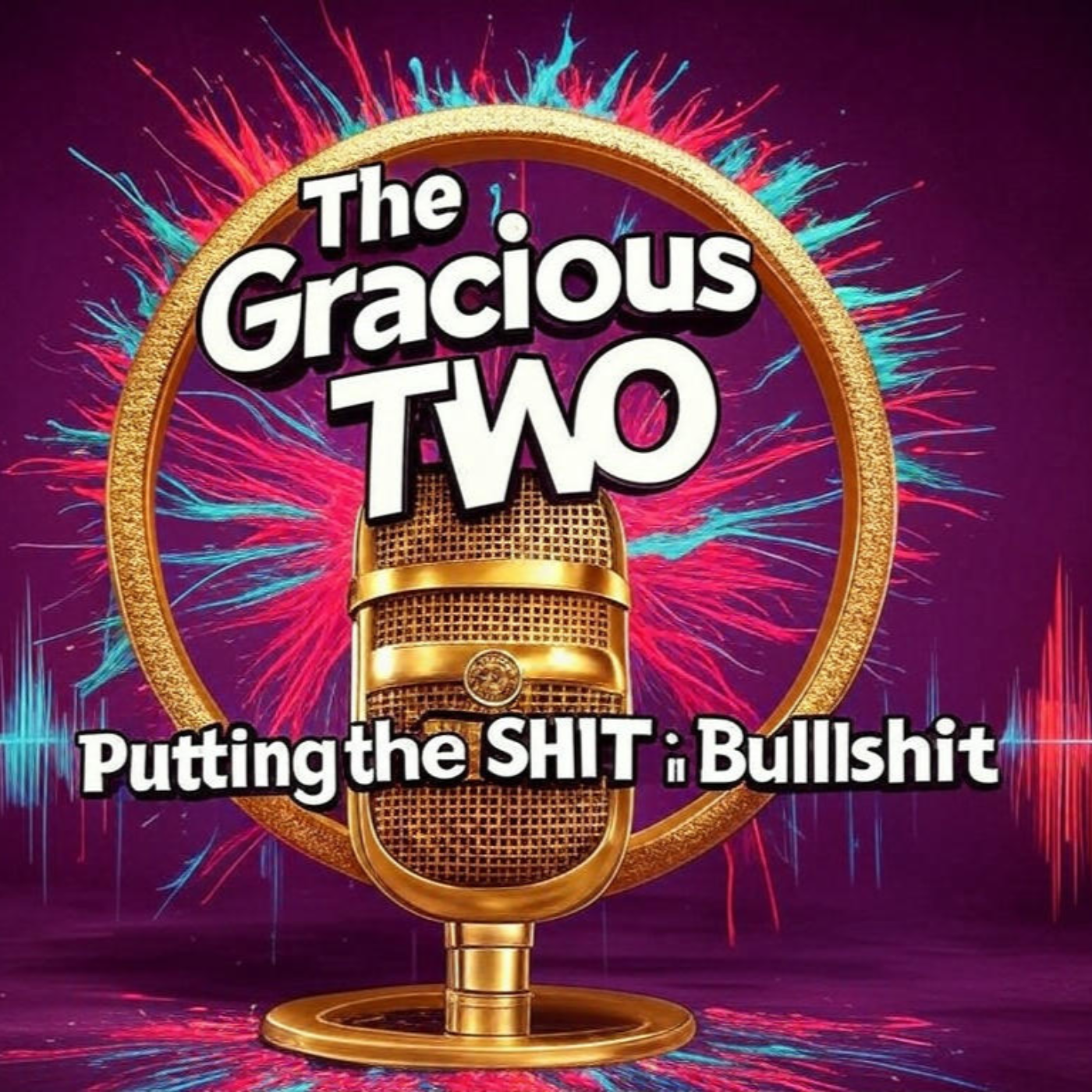AI's Impact on the Entertainment Industry: Job Security and Legal Considerations

The entertainment industry is constantly evolving, adopting new technologies and adapting to changing audience preferences. One of the most transformative forces currently impacting the industry is artificial intelligence (AI). From assisting writers with script development to potentially replacing background talent, AI's presence is undeniable. However, this rapid integration raises crucial questions about job security for writers and actors, as well as the legal and ethical considerations that must be addressed to prevent misuse. In this blog post, we will explore the multifaceted impact of AI on the entertainment industry, examining its current applications, potential future roles, and the necessary safeguards to ensure a balanced and responsible integration. This discussion builds upon the conversation we had with Sean Fay on The Gracious Two - LIVE Show 057 where we touched upon AI's potential to reshape the entertainment landscape. Join us as we delve into the exciting and potentially disruptive world of AI in entertainment.
How AI is Currently Being Used in the Industry
AI is already making inroads in various aspects of the entertainment industry, often working behind the scenes to enhance efficiency and creativity. Here are some key areas where AI is currently being utilized:
Scriptwriting Assistance
AI tools are being developed to assist writers in brainstorming ideas, generating plotlines, and even drafting dialogue. These tools can analyze vast amounts of data from successful movies, TV shows, and books to identify patterns and suggest potentially engaging narratives. AI can also help writers overcome writer's block by providing alternative plot points or character arcs.
Visual Effects and Animation
AI is revolutionizing visual effects (VFX) and animation processes. AI algorithms can automate tasks such as rotoscoping, motion tracking, and rendering, significantly reducing the time and cost associated with these processes. This allows VFX artists to focus on more creative and complex tasks, ultimately enhancing the quality and realism of visual effects.
Music Composition and Production
AI is capable of generating original music compositions in various styles. AI-powered music platforms can create soundtracks for films, TV shows, and video games, or even produce entire albums. While AI-generated music may not always match the artistic depth of human composers, it offers a cost-effective and efficient solution for certain applications.
Content Recommendation and Personalization
Streaming services like Netflix and Spotify heavily rely on AI algorithms to recommend content to their users. These algorithms analyze user viewing and listening habits, as well as ratings and reviews, to predict what content users are most likely to enjoy. This personalization enhances user engagement and helps platforms retain subscribers.
Dubbing and Localization
AI-powered tools are being used to automate the dubbing and localization process for films and TV shows. These tools can translate dialogue into multiple languages and even synchronize lip movements to match the translated audio. This technology can significantly reduce the cost and time required to distribute content to international audiences.
The Potential for AI to Replace Human Roles
While AI currently serves primarily as a tool to assist human creatives, the potential for it to replace certain roles within the entertainment industry is a growing concern. Here are some areas where AI could potentially displace human workers:
Background Actors
AI-generated digital doubles could replace background actors in films and TV shows. These digital doubles can be created using CGI and AI algorithms, and they can be placed in scenes without the need for physical actors. This could significantly reduce the cost of production, particularly for scenes that require a large number of extras.
Scriptwriters for Formulaic Content
AI could potentially replace scriptwriters for formulaic content, such as sitcoms or procedural dramas. AI algorithms can be trained to generate scripts that adhere to specific formulas and tropes, potentially reducing the need for human writers in these areas.
Voice Actors for Certain Roles
AI-powered voice synthesis technology is rapidly improving, and it may soon be capable of replacing voice actors for certain roles. AI voices can be created to sound like specific actors or characters, and they can be used to record dialogue for video games, animated films, and other types of content.
Animators for Repetitive Tasks
AI can automate many of the repetitive tasks involved in animation, such as character rigging and motion capture cleanup. This could reduce the need for human animators, particularly for projects that involve a large amount of repetitive animation.
Job Security Concerns for Writers and Actors
The potential for AI to replace human roles in the entertainment industry has sparked significant job security concerns for writers and actors. Here's a closer look at these concerns:
Writers
Writers fear that AI will be used to generate scripts without human input, leading to a decline in demand for their services. They worry that studios will prioritize cost savings over creativity and originality, opting to use AI-generated scripts rather than hiring human writers. As Sean Fay mentioned on The Gracious Two - LIVE Show 057, his focus remains on securing jobs for human clients with scripts written by humans.
Actors
Actors are concerned that AI-generated digital doubles will be used to replace them in films and TV shows. They fear that studios will create digital replicas of their likenesses and use them in projects without their consent or compensation. Actors also worry that AI-powered voice synthesis technology will be used to replace their voices in animated films and video games.
The Need for Union Protections
In response to these concerns, unions such as the Writers Guild of America (WGA) and the Screen Actors Guild-American Federation of Television and Radio Artists (SAG-AFTRA) are actively negotiating with studios to protect their members' jobs. These unions are seeking to establish clear guidelines for the use of AI in the entertainment industry, ensuring that AI is used as a tool to assist human creatives, rather than as a replacement for them.
Legal Considerations for AI in Entertainment
The increasing use of AI in the entertainment industry raises several important legal considerations, particularly regarding copyright, intellectual property, and the rights of performers.
Copyright Ownership of AI-Generated Content
One of the most pressing legal questions is who owns the copyright to content created by AI. Is it the programmer who created the AI algorithm, the user who prompted the AI to create the content, or the AI itself? Current copyright law generally requires human authorship for copyright protection, which raises doubts about whether AI-generated content can be copyrighted at all.
Protection of Intellectual Property
AI algorithms are trained on vast amounts of data, including copyrighted material. This raises concerns about whether AI is infringing on copyright when it generates new content that is similar to existing works. It's important to establish clear guidelines for the use of copyrighted material in AI training and to ensure that AI-generated content does not infringe on existing copyrights.
Rights of Performers
As AI-generated digital doubles become more realistic, it's crucial to protect the rights of performers. Actors should have the right to control the use of their likenesses and voices, and they should be compensated fairly for any commercial use of their digital doubles.
Protecting Against Misuse of AI: Copyright and Intellectual Property
To mitigate the risks associated with AI in entertainment, it's essential to establish clear legal and ethical guidelines for its use. Here are some key steps that can be taken to protect against misuse:
Clear Copyright Laws
Congress needs to clarify copyright law to address the issue of AI-generated content. This could involve creating a new category of copyright protection for AI-generated works, or establishing clear guidelines for determining authorship in cases where AI is involved.
Licensing Agreements
Licensing agreements can be used to regulate the use of copyrighted material in AI training. These agreements can specify the terms under which AI developers can use copyrighted data, and they can ensure that copyright holders are compensated fairly for the use of their work.
Digital Rights Management (DRM)
DRM technologies can be used to protect the intellectual property of performers. These technologies can prevent unauthorized use of digital doubles and AI-generated voices, and they can ensure that performers are compensated for any commercial use of their likenesses.
The Importance of Human Creativity and Original Scripts
While AI has the potential to enhance efficiency and productivity in the entertainment industry, it's important to recognize the unique value of human creativity and original scripts. AI can assist with certain tasks, but it cannot replace the imagination, emotional depth, and storytelling skills that human writers and artists bring to their work.
The Power of Human Emotion
Human writers are able to tap into their own experiences and emotions to create stories that resonate with audiences. AI can analyze data to identify trends and patterns, but it cannot replicate the emotional intelligence and empathy that are essential for creating compelling narratives.
The Value of Originality
Original scripts are the foundation of the entertainment industry. They provide fresh perspectives, innovative ideas, and unique voices that captivate audiences. AI can generate content based on existing formulas and tropes, but it cannot create truly original works that push the boundaries of storytelling.
Balancing AI Assistance with Human Talent
The key to successfully integrating AI into the entertainment industry is to strike a balance between AI assistance and human talent. AI should be used as a tool to enhance human creativity, not to replace it. Here are some ways to achieve this balance:
AI as a Collaborative Partner
AI can be used as a collaborative partner for writers and artists. AI tools can provide suggestions, generate ideas, and automate repetitive tasks, freeing up human creatives to focus on more strategic and creative aspects of their work.
Human Oversight
AI-generated content should always be subject to human oversight. Human writers and artists can review and refine AI-generated scripts, music, and visual effects to ensure that they meet the highest standards of quality and creativity.
Focus on Original Content
Studios should continue to prioritize the development of original content that showcases the unique talents of human writers and artists. While AI can be used to generate certain types of content, it should not be used to replace original storytelling.
The Future of Entertainment: A Hybrid Approach?
The future of entertainment likely involves a hybrid approach, where AI and human talent work together to create engaging and innovative content. AI can be used to streamline production processes, personalize user experiences, and generate certain types of content, while human writers and artists can focus on creating original stories, developing complex characters, and delivering emotionally resonant performances.
AI-Powered Personalized Entertainment
AI can be used to personalize entertainment experiences for individual viewers. AI algorithms can analyze user viewing habits, preferences, and emotional responses to create content that is tailored to their specific interests.
Interactive Storytelling
AI can be used to create interactive storytelling experiences, where viewers can make choices that affect the outcome of the story. This could involve AI-powered chatbots that allow viewers to interact with characters, or AI algorithms that dynamically adjust the plot based on viewer input.
Conclusion: Navigating the AI Revolution Responsibly
AI is poised to revolutionize the entertainment industry, offering both opportunities and challenges. While AI can enhance efficiency, personalize experiences, and generate certain types of content, it's crucial to address the potential job security concerns for writers and actors, as well as the legal and ethical considerations related to copyright, intellectual property, and the rights of performers. As we've explored, a balanced approach is key, where AI assists human talent rather than replacing it. This involves establishing clear guidelines for the use of AI, protecting the rights of creatives, and prioritizing the development of original content. This discussion is closely related to the conversation we had on The Gracious Two - LIVE Show 057, where we touched on the transformative potential of AI in entertainment. By navigating the AI revolution responsibly, we can harness its power to enhance creativity and innovation, while ensuring a sustainable and equitable future for the entertainment industry.








